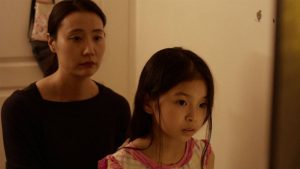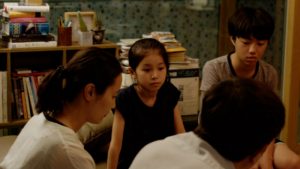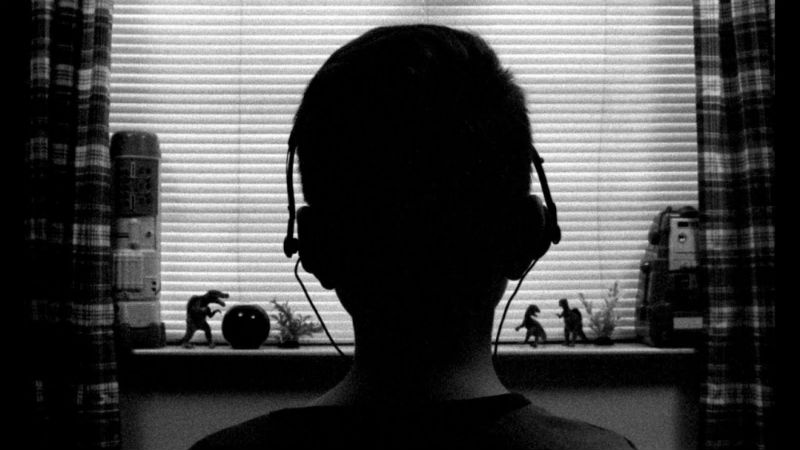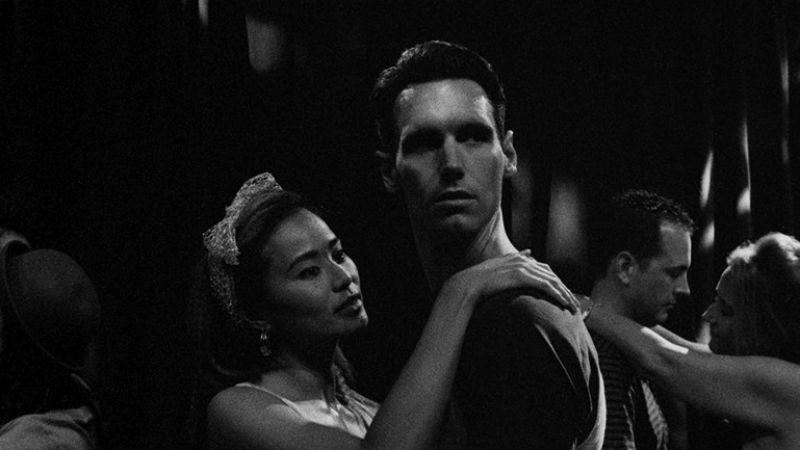QUICK SNAP: LIVE FROM TALLINN
Dark Heart of the Forest is a modest Belgian tale, handsomely told, bolstered by two keen performances by veteran child actress Elsa Houben and newcomer Quito Rayon Richter. Playing two young lovers who escape the confines of their care home and run off into the countryside, it explores the full potential of the woods for both rebirth and connection.
Nikolaï (Quito Rayon Richter) has always been an odd duck. Discovered in the forest by social services, he is quickly branded “Mowgli” by the other kids in the home. Meanwhile, Camille (Elsa Houben) appears to be the more put-together one, but she is hiding a second pregnancy that could land her in a lot of trouble. They quickly find each other in the home and decide to run away. Having no real parents themselves, and Camille losing her first baby due to a forced abortion, they want to be the type of good people that their parents never were.
Despite some narrative trickery in the first half— telling essentially the same story twice yet with key variations in both the male and female perspective — there is little in the final story that should surprise, bar the filmmaker choosing to end on either a positive or a tragic note. This is more of a mood and character piece than a conventional tale — for one, the gendarmerie don’t chase them around — taking great detail to capture the awkwardness of teenage love, as well as its elation, contrasted against a world that quickly wants to confine those who don’t fit in.
Living near a forest myself and usually walking there at least once a day with my dog, I have noticed how its entire look can change depending on the time of day, time of year, precipitation level, weather and available sunlight. As the name suggests, cinematographer Virginie Surdej captures the different moods of the forest well, from foreboding light green to malevolent darkness to hope in the form of the sun chinking through the trees. This moody feel is complemented by hazy synths and later, manic violin scales, rising to a crescendo during the film’s pivotal final scenes. Still, by the end it did feel as if the filmmaking team were running out of ways to shoot essentially the same place.
Shooting on handheld widescreen, featuring close-ups of small gestures and facial expressions, director Serge Mirzabekiantz takes great care to pay respect to the teenager’s plight, including teenage sex scenes that don’t come across as exploitative. While the more combative moments between the young and testy couple could’ve been more interestingly rendered, both Houben and Richter bring a fine rawness to their roles and their adolescent difficulties. Together they feel like a believable young couple, with all the attendant naïveté and passion that entails. The woods may be a cold, dank and often miserable place, but with the right person, there appears to be a chance to create something new.
Dark Heart of the Forest plays in the First Feature section of the Tallinn Black Nights Film Festival, running from 12-28th November.












